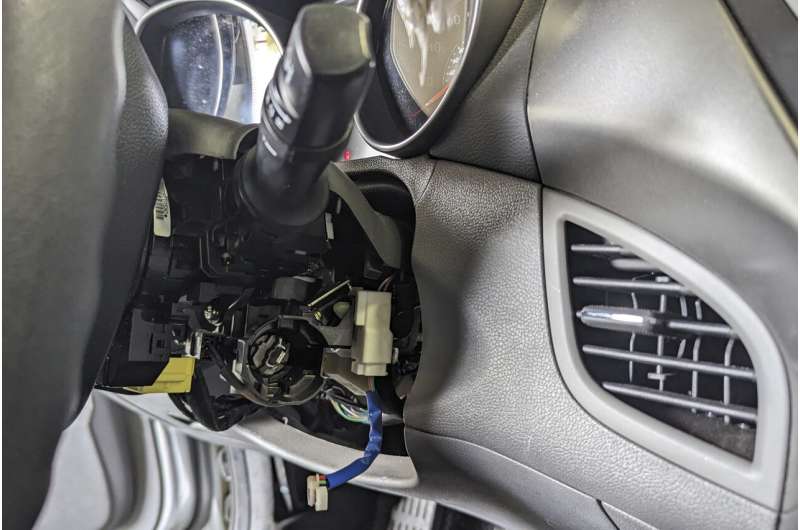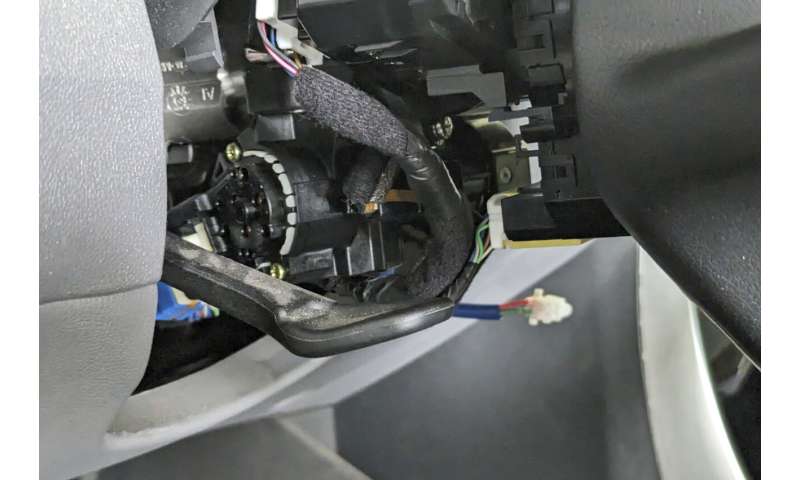This article has been reviewed according to Science X's editorial process and policies. Editors have highlighted the following attributes while ensuring the content's credibility:
fact-checked
reputable news agency
proofread
Hyundai to hold software-upgrade clinics across the US for vehicles targeted by thieves

Hyundai said Wednesday that it will set up "mobile clinics" at five U.S. locations to provide anti-theft software upgrades for vehicles now regularly targeted by thieves using a technique popularized on TikTok and other social media platforms.
The South Korean automaker will hold the clinics, which will run for two to three days on or adjacent to weekends, in New York City; Chicago; Minneapolis; St. Paul, Minnesota; and Rochester, New York. The clinics will take place between Oct. 28 and Nov. 18.
Hyundai said it will also support single-day regional clinics run by dealerships before the end of 2023, although it didn't name locations or dates.
The automaker listed the affected vehicles as the 2018-2022 Accent, the 2011-2022 Elantra, the 2013-2020 Elantra GT, the 2013-2014 Genesis Coupe, the 2018-2022 Kona, the 2020-2021 Palisade, the 2013-2022 Santa Fe, the 2013-2018 Santa Fe Sport, the 2019 Santa Fe XL, the 2011-2019 Sonata, the 2011-2022 Tucson, the 2012-2017 and 2019-2021 Veloster, and the 2020-2021 Venue.
Theft rates of the affected automobiles soared after thieves discovered these models lack engine immobilizers, an anti-theft technology that has long been standard in other vehicles.
-

A recovered 2012 Hyundai Elantra is seen in Berkeley, Calif., after being stolen in early October 2023. Thieves have targeted Hyundai and Kia vehicles that were built without engine immobilizers, a common anti-theft technology that has long been standard on other vehicle models. Now, Hyundai said it will set up “mobile clinics” at five U.S. locations to provide anti-theft software upgrades for vehicles now regularly targeted by thieves using a technique popularized on TikTok and other social platforms. Credit: AP Photo/David Hamilton -

A recovered 2012 Hyundai Elantra is seen in Berkeley, Calif., after being stolen in early October 2023. Thieves have targeted Hyundai and Kia vehicles that were built without engine immobilizers, a common anti-theft technology that has long been standard on other vehicle models. Now, Hyundai said it will set up “mobile clinics” at five U.S. locations to provide anti-theft software upgrades for vehicles now regularly targeted by thieves using a technique popularized on TikTok and other social platforms. Credit: AP Photo/David Hamilton
© 2023 The Associated Press. All rights reserved. This material may not be published, broadcast, rewritten or redistributed without permission.





















